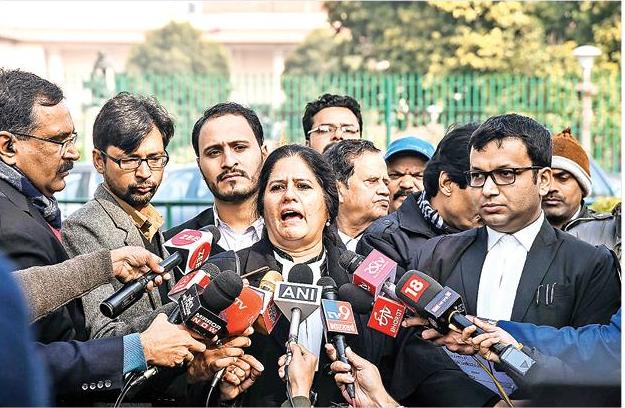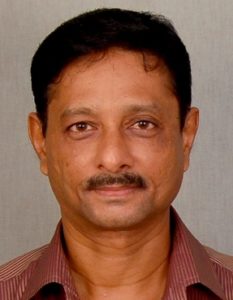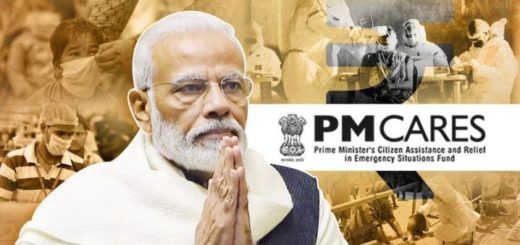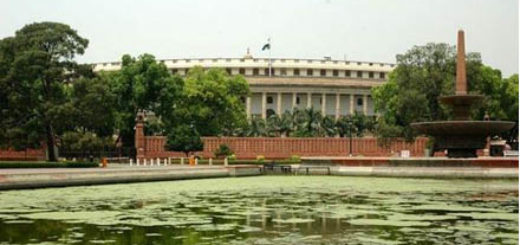|
In a very stunning judgement the three-judge bench, headed by Justice N V Ramana and comprising Justices B R Gavai and R Subhash Reddy of the Supreme Court of India, asked the Jammu and Kashmir administration (read the NDA dispensation at the Centre) to immediately restore internet services in institutions providing essential services like hospitals and educational places. Extending its observations to the media, the bench said freedom of press is a valuable and sacred right. The honourable judges also gave the verdict that Section 144 of the CrPC (prohibitory orders) cannot be used indefinitely to suppress freedom of speech and expression and difference of opinion. Will the media now take heart and do its duty instead of compromising and cowtowing to the powers that be?
At a time when most citizens felt that the Executive and the Judiciary had been rendered spineless by the current dispensation, with only the student force of the country holding high the beacon of democracy in the face of brutal and life-threatening suppression, this judgement comes as a refreshing lease of life. It assures us all is not lost to the Majoritarianism juggernaut and that sanity still prevails. As long as the Judiciary and the defence forces refuse to be indoctrinated, the country is safe. Isaac Gomes, Asso. Editor, Church Citizens' Voice.
New Delhi: In a significant judgment with implications on basic freedoms beyond Kashmir, the Supreme Court on Friday said internet access is a fundamental right under Article 19 of the Constitution and asked the Jammu and Kashmir administration to review within a week all curbs in the union territory. Welcomed by people in the Kashmir Valley who have been without internet for the last five months as “happy news” at last, the apex court verdict also said Section 144 of the CrPC (prohibitory orders) cannot be used indefinitely to suppress freedom of speech and expression and difference of opinion.
Extending its observations to the media, the bench said freedom of press is a valuable and sacred right.
The three-judge bench, headed by Justice N V Ramana and also comprising Justices B R Gavai and R Subhash Reddy, asked the Jammu and Kashmir administration to immediately restore internet services in institutions providing essential services like hospitals and educational places.
However, there was no mention of any time-frame of restoration of internet services to other sectors and people in the Valley.
The apex court said magistrates should apply their mind and follow the doctrine of proportionality while passing prohibitory orders.
The Supreme Court verdict, welcomed by the opposition Congress as the “first big jolt of 2020” to the government, came on a batch of pleas challenging the curbs imposed in Jammu and Kashmir after August 5 — when the Centre revoked the states special status and bifurcated it into the union territories of Jammu and Kashmir, and Ladakh.
“It is a very, very significant pronouncement by the Supreme Court,” Vrinda Grover, lawyer for Kashmir Times executive editor Anuradha Bhasin whose plea was among those taken up, told reporters.
Congress leader Ghulam Nabi Azad, whose plea was also taken up, labelled the judgment “historic”.
“This is the first time the Supreme Court has talked about how people of Jammu and Kashmir feel. I would like to thank the Supreme Court for a very historic decision and the people from across the country were waiting for it, specially the people of J-K,” he said.
“The government of India has misled the entire country. This time the Supreme Court was forthright and they didnt come under any pressure,” he said. His party colleague, Congress chief spokesperson Randeep Surjewala, also lashed out at the government. “SC delivers first big jolt of 2020 to illegal activities of Modi Govt by stating importance of internet as a fundamental right. Double shock for Modi-Shah that dissent cannot be oppressed by imposing section 144. Modiji reminded that nation bows before Constitution and not him!” Surjewala said on Twitter.
“Modi-Shah now have a week to review internet restrictions and place the reasons before the public. No more sealed envelopes to hide the truth in,” he added. The National Conference and the Peoples Democratic Party welcomed the order too.
“The observations of the apex court about snapping of internet services indefinitely are significant and the government must take a call to review and restore the connectivity immediately,” NC provincial president Devender Singh Rana said here.
“Finally #SupremeCourt has woken up to the injustices cast upon the people of J&K, calling such govt. lodged curbs an “abuse” of power reinstates our faith in the judiciary,” the PDP, an ally of the BJP till 2018, said on its official Twitter handle.
Away from the political slugfest, people in Kashmir Valley said they hoped their internet connections would be restored soon. / PTI /
The Telegraph Calcutta dated 11 January 2020 reads:
SECTION 144 CrPC cannot be used as a gag
Section 144 which prohibits gathering of four or more people, cannot be used as a tool to prevent legitimate expression of opinion, grievance or exercise of democtratic rights, the Supreme Court said on Friday.
Orders passed under the Section have direct consqeuences on the fundamental rights of the public and such power, if used in a casual and cavalier manner, would result in severe illegality, the apex court said.
Section 144 of the Code of Criminal Procedure (CrPC) enables the State to take preventive measures to deal with imminent threats to public peace.
"This power should be used responsibly, only as a measure to preserve law and order. The order is open to judicial review, so that any person aggrieved by such order can always approach the appropriate forum and challenge the action. But the aforesaid means of judicial review will stand crippled, if the order itself is unreasoned or un-notified," the bench said.
The Indian Constitution protects the expression of divergent views, legitimate expressions and disapproval, and this cannot be the basis for invocation of Section 144 unless there is sufficient material to show that there is likely to be an incitement or threat to public safety or danger, it added.
The top court further said that the power under Section 144 is exercisable not only where there exists present danger, but also where there is an apprehension of danger and repititive orders under this section would be an abuse of power.
It directed the authorities to immediately review the need for continuance of any existing orders passed under Section 144.
"However, the danger contemplated should be in the nature of an `emergency' and for the purpose of preventing obstruction or annoyance or injury any person lawfully employed. The power under Section 144 CrPC, cannot be used to suppress legitimate expression of opinion or grievance or exercise of any democratic rights.
"An order passed under Section 144 CrPC should state the material facts to enable judicial review of the same. The power should be exercised in a bona fide and reasonable manner, and the same should be passed by relying on the material facts, indicative of application of mind. This will enable judicial scrutiny of the aforesaid order," the bench said.
While imposing Section 144, the magistrate cannot apply a straightjacket formula without assessing the gravity of the prevaililng circumstances and the restrictions applied must be proportionate to the situation concerned, the order added.
In this context, Congress leader and senior advocate Kapil Sibal told a media conference: "Governments cannot act like irrational emperors. They cannot pass orders like sultans, shutting down communication, imposing communication, imposing Section 144 without giving specific reasons in writing. Suspending emergency services has been declared impermissible. Specific guidelines have now been issued." He conveniently forgot that it was his government which had clamped down Emergency on 26 June 1975 until its withdrawal in January 1977!
|


















